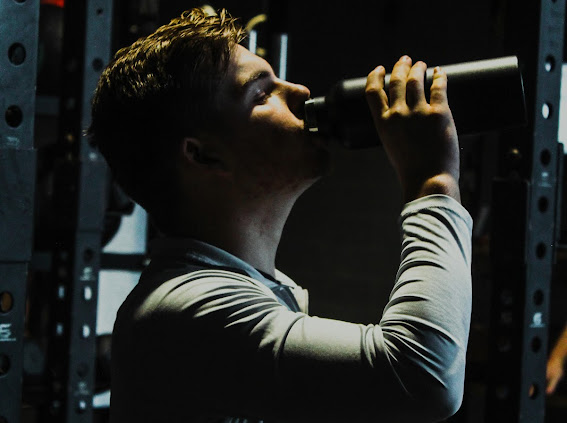Today we are talking hydration and youth performance. You know that feeling when you’re super thirsty and your mouth feels like sandpaper? That’s your body screaming for water! Dehydration happens when you lose more fluids than you’re taking in. It might not seem like a huge deal, but for young athletes, it can seriously impact your performance and even put their health at risk. Here we explore why before examining effective hydration strategies for young athletes.
Why is Dehydration a Problem for Young Athletes?
- Smaller Bodies, Bigger Impact: Children have a higher proportion of body water compared to adults. They have a larger surface area to volume ratio than adults too. Even small amounts of fluid loss can have a significant impact on their bodies. Think of it as having less fluid reserves compared to adults.
- Growing Bodies: Young athletes are still developing, and water plays an important role in body functions and growth. Therefore, dehydration can interfere with growth and development processes.
- Intense Activity: Sports like football, basketball, and track athletics involve a lot of physical exertion, leading to increased sweat loss and a higher risk of dehydration. Sweat losses that are not replaced lead to a signifcant reduction in performance.
- Heat Stress: When you’re active in hot weather, you sweat more, increasing the risk of dehydration and heat-related illnesses like heat exhaustion and heatstroke. Smaller bodies can be more susceptible to this.
Signs of Dehydration in Young Athletes:
- Thirst: This is the most obvious sign, but sometimes children don’t recognize or ignore their thirst.
- Headache: Dehydration can cause headaches due to decreased blood flow to the brain.
- Dizziness or Lightheadedness: This can occur due to a drop in blood pressure, subsequent to a reduction in blood volume.
- Fatigue: Feeling tired and lacking energy is a common sign of dehydration.
- Muscle Cramps: Dehydration can disrupt electrolyte balance, leading to muscle cramps.
- Decreased Urine Output: If a child is not urinating frequently or their urine is dark yellow, it could be a sign of dehydration.
Hydration and Youth Performance: The Impact of Dehydration:
- Reduced Endurance: Dehydration can significantly decrease your endurance and stamina during exercise.
- Decreased Muscle Strength: Dehydration can weaken your muscles, making it harder to perform at your best.
- Impaired Cognitive Function: Dehydration can affect your concentration, focus, and decision-making skills on the field.
- Increased Risk of Injury: Dehydration can lead to fatigue and muscle cramps, increasing the risk of injuries like sprains and strains.
Hydration Strategies for Young Athletes:
- Before Exercise:
- Encourage your child to drink plenty of fluids in the hours leading up to exercise.
- Avoid sugary drinks and excessive caffeine, which can actually contribute to dehydration.
- During Exercise:
- Provide easy access to water or sports drinks throughout the game or practice.
- Encourage your child to take frequent sips, even if they don’t feel thirsty.
- Consider using sports drinks containing electrolytes to replace lost minerals.
- After Exercise:
- Encourage your child to continue drinking fluids after exercise to replenish lost fluids.
- Offer water, diluted fruit juice, or electrolyte drinks.
Coach and Parent Friendly Hydration Strategies for Young Athletes:
- “Hydration Heroes” Program: Recognize and reward athletes who consistently prioritize hydration.
- “Water Break Challenges”: Introduce fun challenges to encourage water intake during practice, such as “Most Water Drank in 15 Minutes” or “Team with the Most Water Bottles.”
- “Hydration Stations”: Set up designated water stations with colorful cups and fun signs to make hydration more appealing.
- Educational Games: Incorporate interactive games and quizzes about hydration and youth performance into team meetings to increase awareness.
- “Hydration Buddies”: Pair up athletes to remind each other to drink water during practice and games.
Remember:
Every child is different, and hydration strategies for young athletes vary depending on factors like age, weight, activity level, and weather conditions. Tuning young people and their parents into their unique needs is important.
Disclaimer: This information is for general knowledge and informational purposes only and does not constitute medical advice. Always consult with a healthcare professional or certified sports dietitian for personalized guidance on hydration for your child.
By prioritizing hydration, young athletes can improve their performance, reduce their risk of injury, and stay healthy on and off the field.
Sources:
- American College of Sports Medicine (ACSM): Provides evidence-based guidelines on hydration for athletes.
- UK Coaching: Have a range of resources for coaching youth athletes
This blog post aims to provide a comprehensive overview of the importance of hydration for young athletes. By implementing these strategies and raising awareness, we can help ensure that young athletes stay hydrated and perform at their best.
